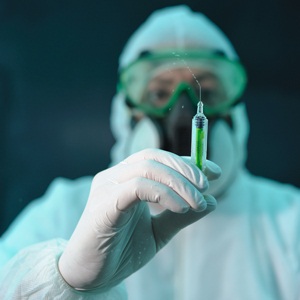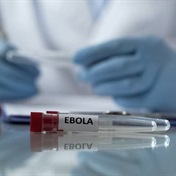
He's travelled to the sites of worrisome outbreaks of SARS, bird flu, MERS. But the Ebola outbreak that's spiralled out of control in West Africa presents new challenges for even a veteran infectious disease doctor — starting with how to stay safe.
"You don't have to be exhausted to make a small mistake" with protective gear, warned Dr. Daniel Lucey of Georgetown University Medical Centre, who recently returned from three weeks in Sierra Leone, where he saw Ebola for the first time.
Views of the front lines by returning physicians like Lucey shed light on some of the day-to-day difficulties in containing Ebola, and why health care workers have been at such risk.
"I don't want to discourage anyone who wants to volunteer," stressed Lucey, who soon leaves for Africa again, to work in Liberia for six weeks. "There is so much that even one person can contribute."
Some things to know:
Protective equipment varies
In Freetown, Lucey helped care for patients at Connaught Hospital's isolation unit who were waiting to learn if they had Ebola.
In addition to protective suits, aprons and masks, he and fellow health workers wore goggles that quickly fogged up as they began to sweat.
"You can see out of them, but it's not optimal," Lucey said. "I walk very slowly, and I do everything very slowly" to compensate.
Workers double-glove. But the unit had so-called exam gloves that come to the wrist and "they're not a very strong material," rather than longer surgical gloves that can be pulled over the suit's sleeve for extra protection, he said.
Lucey said that as he departed, the centre received a valuable shipment of clear plastic face shields that won't fog up and will cover more skin, but not surgical gloves.
Read: Britain sends military to fight Ebola
Taking of contaminated gear can be risky
It requires washing still-gloved hands in a bleach solution before starting and washing them again after taking off each separate piece in a precise manner and order.
"I'm embarrassed to admit it," Lucey said, but he missed one of those in-between washings.
"You know, I just forgot to do that one time after one step," he said. "It meant to me, I was not thinking as clearly."
"You're sweating like crazy," he added. "It takes a lot of time. But you've got to take the risk as close to zero as possible."
Petrol and ambulance drivers can affect care
Before a mobile testing laboratory arrived the other week, Lucey said blood samples had to be driven to another city about four hours away for diagnosis, sometimes taking a few days. One day he counted 17 patients waiting in the 13-bed unit to learn if they were infected. Plastic sheets separated the beds.
Patients found to have Ebola then had to make that same trip by ambulance to reach the nearest treatment centre, he said.
"The ambulance might come once a day, or run out of petrol," Lucey said. "Hours matter, and days matter, a lot."
Read: Ebola overwhelming health services in west Africa
More health workers needed
"Don't work alone," Lucey learned. He and Dr. Marta Lado, a Spanish doctor who runs Connaught's isolation unit, teamed up to watch each other put on and take off their protective gear, to guard against missteps.
Over nine days, Lucey said he and other doctors trained about 160 local health workers from around Freetown to properly handle personal protection equipment. He said he was thrilled to see nurses creating posters of the safety steps and instructing each other. Some had friends or colleagues who've died of Ebola, yet they came: "It's inspiring and humbling."
But they also have to be equipped to get the job done, he said.
"Everyone wants to do the right thing," Lucey said. But in the end, "Do you get the surgical gloves? Do you get the ambulances? Do you get the petrol? Do you get someone to drive the blood samples to the lab? Does the lab have electricity or is the generator out?"
Read more:
Ebola risk from animals higher than thought
Ebola vaccine works but needs booster
Sierra Leone lockdown will not stop Ebola




 Publications
Publications
 Partners
Partners











